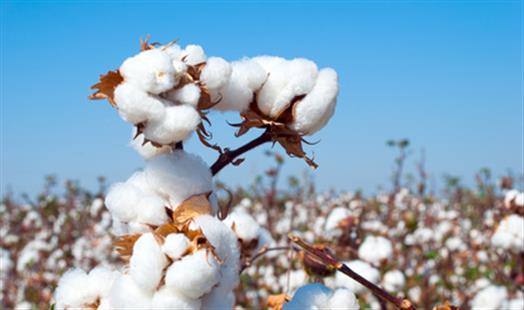Arkansas cotton farmers face perilous conditions
by July 24, 2017 4:51 pm 1,088 views

Arkansas farmers planted 425,000 cotton acres this year, nearly double the number planted in 2015. Low prices, Chinese cotton surpluses, and surging input costs could cause the number of acres to drop in the future if changes in the Farm Bill are not made, Agriculture Council of Arkansas Executive Vice-President Andrew Grobmyer told Talk Business & Politics.
His organization and others have been pushing Arkansas’ congressional delegation to install a safety net subsidy in the near-term for farmers and to formulate a safety net subsidy in the 2018 Farm Bill. Without them, Arkansas’ cotton farmers could be in peril, he said.
“It’s in our state’s interest and the nation’s interest to have a healthy, vibrant cotton industry,” he said.
There was a time when “King Cotton” ruled the South and the Natural State. Arkansas’ sandy soil in the Mississippi River Delta Region is prime for growing the crop primarily used in the textile industry. In recent years, the cotton industry has been plagued by a number of factors, according to the University of Arkansas’ Agriculture Extension Office.
Record soybean and corn prices in the early part of the decade compelled many farmers to dial back their cotton acres in favor of more lucrative crops. Input costs for items such as fertilizer and weed control have continued to rise even as prices remain in the doldrums. China has warehoused millions of tons of cotton which has driven world commodity markets lower. Weeds and other wild grasses are a continuous nuisance.
Cotton was selling for 68-cents per pound Friday on commodity exchange markets. In 2010, cotton sold for about $2 per pound, and when compared to modern input costs, this has been one of the worst periods for cotton profitability in decades, Grobmyer said.
“When prices are this low, it’s extremely hard, if not impossible, for farmers to break even,” he said.
When the 2014 federal farm bill was crafted, a safety net for cotton farmers was not included. Insurance provisions were, but those are intended more for natural catastrophes such as floods or drought. Cratering prices were not taken into account.
In 2016 the federal government took action to help the cotton industry. The U.S. Department of Agriculture (USDA) Farm Service Agency (FSA) paid an estimated $300 million in cost-share assistance payments to cotton producers through the Cotton Ginning Cost-Share program, in order to expand and maintain the domestic cotton market.
Eligible producers received a one-time cost share payment, based on the producer’s 2015 cotton acres reported to FSA, multiplied by 40% of the average ginning cost for each production region.
Cotton has to be ginned prior to marketing the lint for fiber, or the seed for oil or feed. Arkansas has 31 gins that employ an untold number of workers. The state has added three gins after suffering losses for several years. Several gin operators have cotton crops, so the two enterprises are strongly connected in many communities, Grobmyer said. If the gins are lost, it would have a significant impact on many rural communities.
To alleviate the financial pressure, Grobmyer and others have petitioned the state’s congressional delegation to enact a similar safety net this year for cotton farmers. When the 2018 Farm Bill is formulated, a safety net needs to be included, he said. Finite details have not been settled upon, but it would likely be based on acreage planted and and would be tied to the market conditions. If prices were good, the subsidy would be less or not take effect. It would only be enacted if market conditions were bad.
Arkansas cotton will be grown in the state, ginned, and it may be used in textile manufacturing. China’s largest cotton textile manufacturer, the Shandong Ruyi Technology Group, will invest $410 million to retrofit a 1.4 million square foot cotton-spinning, garment factory in Forrest City. It will create up to 800 jobs that pay on average $15 per hour. The plant could use up to 200,000 tons of Arkansas cotton per year, Grobmyer said. Arkansas is the fifth largest cotton producer among all states, producing more than 840,000 bales in 2016.
Grobmyer and the National Cotton Council, will travel to Washington D.C. To push for changes in the Farm Bill to help cotton farmers. The hope is that President Donald Trump will support the effort, he said.
“We have to protect our farmers,” he said.
